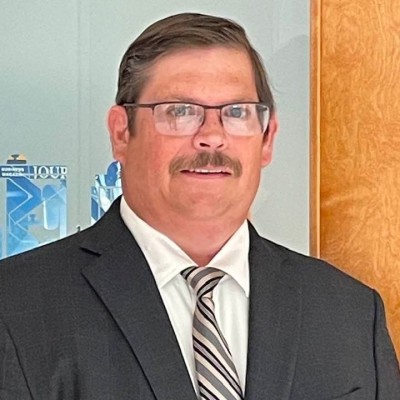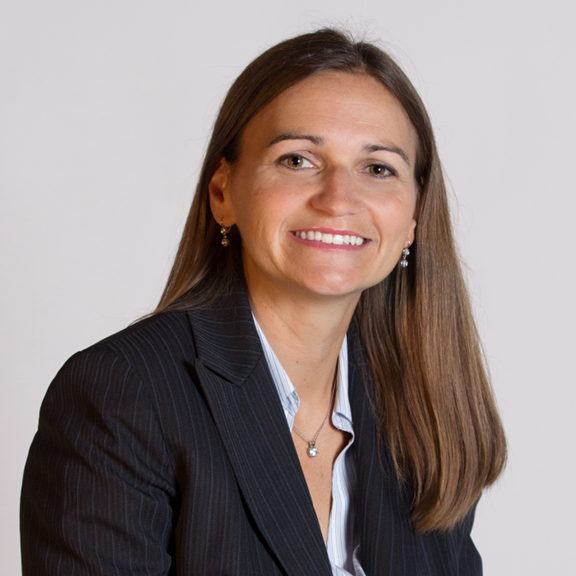2025 Speakers

Lisa Anderson
Program Topic: Supply Chain: Insights & Implications for Future Planning
Lisa Anderson is the founder and president of LMA Consulting Group Inc., a consulting firm that specializes in manufacturing strategy and end-to-end supply chain transformation that maximizes the customer experience and enables profitable, scalable, dramatic business growth. A recognized supply chain thought leader, Ms. Anderson has been named among the Top 15 Supply Chain & Logistics Experts, Top 40 B2B Tech Influencers, and Top 16 ERP Experts to Follow.
Ms. Anderson has been featured in Bloomberg, Inc. Magazine, the LA Times, PBS, and the Wall Street Journal. She is an expert in planning and supply chain transformation, the use of ERP systems and advanced technologies, and process optimization and harmonization. Lisa specializes in the SIOP process and has published an ebook, SIOP (Sales Inventory Operations Planning): Creating Predictable Revenue and EIBTDA Growth on how to stay ahead of changing conditions in your supply chain with superior customer service and profitable growth. For more information on supply chain strategies, sign up for her Profit Through People® Newsletter or visit LMA Consulting Group.
Prior to founding LMA Consulting Group Inc., Lisa was the Vice President of Product Supply of PaperPak, a private equity backed global healthcare products manufacturer. She holds a BA from the University of North Carolina at Chapel Hill and an MBA from Cal State Fullerton and holds supply chain certifications from the Association of Supply Chain Management.

Britt Burt
Program Topic: Data Centers Industry Outlook
Britt Burt, Senior VP of Research for Power Industry joined Industrial Info Resources as a member of the project research team in March of 1988. In 2000 he was promoted to Manager of the Power Industry Research Team and after a brief period of time was moved into the position Vice President of Research for the Power Industry. Britt has global responsibility of leading Industrial Info Resources’ power industry researchers as they identify key project, asset and event details affecting electricity markets around the world. Prior to joining Industrial Info Resources Britt worked in the industrial construction sector holding positions with Brown & Root, Zachry Construction and Bay Offshore Incorporated.

Alex Chausovsky
Program Topic: Building an Effective Talent Strategy: Proven Tactics to Attract, Hire and Retain Your Most Valuable Asset
Alex Chausovsky is the Director of Analytics and Consulting for the Bundy Group. He is a highly experienced market researcher and analyst with more than two decades of expertise across subjects including economics, manufacturing, automation, advanced technology trends, and business cycle analysis. He has consulted and advised companies throughout the US and Canada, Europe, South America, and Asia. In his investment banking advisory role, Alex is a trusted source of information for owners and executives of privately held firms who are seeking a business sale, acquisition, or financing.
Alex has delivered over a thousand presentations, webinars, and workshops to small businesses, trade associations, and Fortune 500 companies across a spectrum of industries, and is the go-to source of industry data and insights for business owners and leaders. Alex’s analysis has been featured in the Wall Street Journal, on the BBC, and on NPR, and he is a Top Voice on LinkedIn.

Eugene Chausovsky
Program Topic: Strategic Outlook 2025: Geopolitics, Policy, and Economic Headwinds
Eugene Chausovsky is the Senior Director for Analytical Development and Training at the New Lines Institute, where he oversees the institute’s publication and content production process, manages institutional training efforts, and guides the development of analytical products.
He previously served as Senior Eurasia Analyst at the geopolitical intelligence firm Stratfor for more than 10 years. His analytical work has focused on political, economic and security issues pertaining to Russia, Eurasia, and China, as well as global connectivity issues related to energy and climate change.
Eugene has contributed articles to a wide range of outlets including Foreign Policy, The National Interest, the Wall Street Journal, Forbes, and Al Jazeera and has given interviews to global media outlets such as BBC, CNBC, Bloomberg, Politico, and CNN. He’s delivered numerous presentations at international conferences and served as a guest lecturer at universities in the United States and abroad. He has also organized crisis simulations and delivered client briefings to numerous international organizations and businesses, including Fortune 500 companies.
He holds a Master of International Public Policy degree from the Johns Hopkins University School of Advanced International Studies and a Bachelor of Arts in International Relations from the University of Texas at Austin.

Tom Decker
Program Topic: Water/Wastewater Industry Outlook
Retired from corporate life, Tom Decker now heads up Thomas E. Decker Consulting, LLC and provides market strategy and business management expertise to water and wastewater sector companies, organizations, and utilities. Prior to founding his consulting firm Tom worked in leadership positions for Brown and Caldwell, CH2M HILL, Parsons Corporation; and as partner and director of marketing for the Infrastructure Business of Black & Veatch. During his engagement in the water and wastewater field, he has led worldwide and national business development operations; directed numerous growth initiatives including geographic expansions as well as mergers and acquisitions; facilitated planning efforts for water and wastewater utilities; served as program manager for large capital improvement programs; and operated wastewater treatment plants.

Michael J. Devereux, II
Program Topic: Artificial Intelligence
Mike Devereux currently serves as Wipfli’s National Manufacturing Industry Leader. In that role, he oversees a team of professionals nationally who provide audit, tax, and consulting services to the manufacturing sector. Mike’s role is primarily focused on organic growth, increasing Wipfli’s national presence and identifying value for manufacturing clients and prospective clients.
He speaks regularly to various professional and industry trade associations on ways manufacturers can reduce their Federal and state tax liabilities, and he provides insights on recent and future legislation impacting the manufacturing sector.

Eric McClafferty
Program Topic: Government Policy Insights & Impacts
Eric McClafferty’s practice focuses on counseling, compliance programs, internal investigations and enforcement matters related to economic sanctions and denied parties, export controls, the Foreign Corrupt Practices Act (FCPA), customs, antidumping and countervailing duties, and reviews and investigations before the Committee on Foreign Investment in the United States (CFIUS).
Mr. McClafferty guides senior company officers and compliance personnel involved in international transactions through the restrictions imposed by evolving U.S. economic sanctions on Cuba, Crimea, Iran, North Korea, Russia, Sudan and Syria, and other rules administered by the Department of Treasury’s Office of Foreign Assets Control (OFAC). In addition, he advises on export licensing and classification; performs due diligence export compliance reviews; establishes company and product-specific compliance and training programs for product, software and technology exports; and guides clients through export enforcement investigations and penalty negotiations related to exports of military, dual-use and nuclear items.
Mr. McClafferty’s clients include exporters of industrial, aerospace, high-technology and agricultural products and technology, such as chemicals, chemical processing equipment, pharmaceuticals, software, electronics, unmanned vehicles and military items, including aircraft and related components, computers, satellite software and components, semiconductors, nuclear power plant components and specialty metals, powders and alloys.
He works with all export control agencies of the U.S. government, including the Department of Commerce’s Bureau of Industry and Security (BIS); Department of State’s Directorate of Defense Trade Controls (DDTC); and counterparts at the Department of Defense (DOD), the Nuclear Regulatory Commission (NRC) and the Department of Energy (DOE).

Shane Mullins
Program Topic: Market Trend & Forecast – Data Centers
Shane Mullins is the Senior VP of Product Development & Research for Industrial Info Resources. With 35 years at the company, he has held various roles developing market intelligence for the power generation, oil and gas (midstream and downstream) markets, and the most recent Data Center global capital investment growth initiative. He has published several white papers on these industries and is a regular speaker at IIR’s Annual Market Outlook events, while sharing his expertise at corporate events, tradeshows, and industry association meetings.

Omar Nashashibi
Program Topic: Government Policy Insights & Impacts
Mr. Nashashibi is a lobbyist and consultant in Washington, D.C. with more than two decades working with politicians and policymakers on behalf of the manufacturing industry.
Mr. Nashashibi has represented clients before the previous and current administrations, the U.S. Congress, particularly the House Ways and Means and Senate Finance, Appropriations, and Transportation Committees. He has also consulted clients on matters in several state and local governments, including the District of Columbia, Virginia, and Illinois, among others.
Prior to entering the private sector, Mr. Nashashibi worked for the Office of Management and Budget, focusing on federal procurement policy. He also has extensive experience working with non-profits and public policy foundations. Mr. Nashashibi served as a research assistant at the Institute for Public Accuracy, a nation-wide consortium of public policy researchers and analysts. In 1995, he began his career in Washington, D.C. covering congressional hearings and agency proceedings for a nation-wide nonprofit publication.
Mr. Nashashibi graduated from the George Washington University in Washington, D.C., where he studied Political Science and International Affairs.

Heather Rhoderick
Program Topic: VMA’s Response: PFAS, Trade, Taxes & More
Heather Rhoderick is the president of the Valve Manufacturers Association, where she is responsible for the strategic direction and operations of the association, and its affiliate the Valve Repair Council. In 2021 she started a Government Relations program. VMA also provides education, thought leadership and analysis on manufacturing and technical issues, and market trend information, and produces industry events and a magazine, valvemagazine.com.

Lindsey Roskopf
Program Topic: Government Policy Insights & Impacts
Lindsey Roskopf is a Special Counsel in the International Trade practice at Kelley Drye & Warren LLP, where her practice focuses on a wide range of international trade compliance matters. She advises clients on export controls, economic and trade sanctions, antiboycott laws, and customs and import laws.
Lindsey has worked with clients in the manufacturing, oil and gas, hydrographic survey, electronics, medical device, chemicals, aerospace, entertainment and not-for-profit sectors.
She regularly assists clients with identifying export licensing requirements, developing export licensing strategies, reviewing technology transfer controls, determining the export jurisdiction and classification of equipment and technology, and responding to government inquiries. She has extensive experience in advising clients on compliance with U.S. sanctions, particularly with respect to Russia, Venezuela, Iran and Cuba. Lindsey also has considerable experience in conducting internal investigations and making voluntary disclosures to the Department of Treasury’s Office of Foreign Assets Control (OFAC), the Department of Commerce’s Bureau of Industry and Security (BIS), and the Department of State’s Directorate of Defense Trade Controls (DDTC).
Lindsey also helps clients navigate the complexity of U.S. customs laws. She regularly advises importers on customs matters including tariff classification, tariff mitigation strategies, country of origin determinations, free trade agreement origin verifications, merchandise valuation, and the application of antidumping and countervailing duties. In addition, she assists clients with responses to U.S. Customs and Border Patrol (CBP) inquiries, seizure notices, and penalty notices, and she advises importers on filing prior disclosures.

Amy L. Stein, JD
Program Topic: The Tech Energy Transition
Professor Stein is the former Associate Dean for Curriculum and current Cone Wagner Professor of Law and affiliate faculty for the University’s AI2 Center at the University of Florida Levin College of Law. She serves on the University’s AI Working Group in AI Ethics and Policy and the Florida Climate Institute, as well as the Association of American Law Schools’ Natural Resources and Energy Law and Environmental Sections. Popular Science named Professor Stein one of the “Visionary Thinkers” of 2022 for her work on algorithms and the climate crisis. She writes and teaches at the intersection of emerging technologies and the law. Among other courses, she has been teaching Energy Law for the past fifteen years and Artificial Intelligence and the Law for the past six years.
Professor Stein is an internationally recognized law and technology scholar, sharing her work on the legal, sustainability, and ethical implications of various technologies, including artificial intelligence (AI). Some of her AI-related publications explore the possibilities of using AI to address aspects of climate change, Artificial Intelligence and Climate Change, 37 Yale Journal on Regulation 890 (2020), work that has been cited in Forbes, as well as the implications of artificial intelligence for tort defenses in civil liability, Assuming the Risks of Artificial Intelligence, 102 Boston University Law Review 979 (2022). More recently, she is exploring the impacts of data center growth on the electric grid and the sustainability implications of generative AI. Prior scholarship focuses on energy data monopolies, delegations of authority related to emergency powers, pathways to integrate emerging energy technologies, and the federalism implications of energy and climate change, all of which can be accessed at http://ssrn.com/author=1216973.
Professor Stein began her academic career at George Washington University Law School and Tulane Law School. Prior to her academic appointments, she practiced as an environmental and litigation associate for Latham & Watkins LLP in the firm’s Washington, D.C., and Silicon Valley offices. She is a member of the District of Columbia, Illinois, and California state bars. She is a graduate of the University of Chicago (AB) and the University of Chicago Law School (JD). She is a member of the Order of the Coif, an honorary society for professors that have attained high distinction for their scholarly accomplishments.

Ben Yates
Program Topic: U.S. Foundries: Capacity, Tariffs, and the Future of Castings
Ben Yates joined AFS in 2017, where he is responsible for marketing and public relations, membership development, chapter relationships, advertising sales, event sponsorships, and industry solutions programs. Before joining AFS, Ben spent 14 years with Associated Equipment Dealers, a North American trade group serving construction equipment dealerships. In addition to regular writing and speaking duties at AFS, he has extensive experience in grassroots advocacy, having hosted facility tours with more than 60 U.S. senators and congressmen. He holds a bachelor’s degree from Ball State University and master’s degree from Florida State University.
